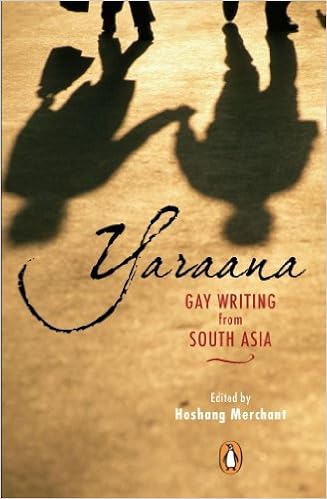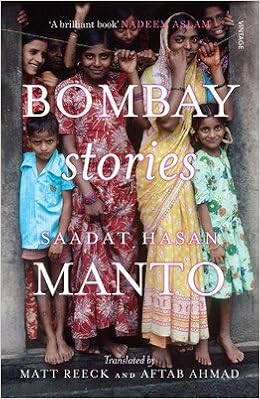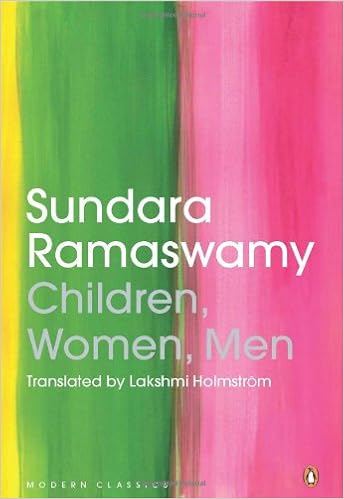Mahatma Gandhi, lovingly called Gandhiji and the Father of the Nation, has been remembered by the entire world for his honest, non-violent methods of leading a nation to independence.
In Sonia Mehta’s ‘Junior Lives: Mahatma Gandhi’, the author explores the life of Gandhiji from his childhood and shows us how he became the leader that he is today.
Here’s a short excerpt from the book.
The thirteen-year-old lad was impatient. He wanted to get back to his friends, who were having a great time playing outdoors. But here he was—stuck indoors, made to dress up in clothes that were icky and uncomfortable.
‘Can I go now?’ he asked his mother, trying to shrug off the elaborate outfit she was trying to get him to wear.
‘No, Mohan,’ she replied. ‘You can’t go play with your friends today. It’s your wedding day.’
That young boy was Mohandas Karamchand Gandhi. At thirteen years of age, he was about to get married to a girl who was just a little older than he was. His family would never have believed it then, but this boy was to grow up to become one of the world’s greatest leaders, who would lead India to freedom. He showed people a nonviolent way of life. Millions of people adored him and gave him titles like Father of the Nation, Bapu (meaning father) and Mahatma (meaning great soul). What an incredible achievement for such an ordinary boy, born to such ordinary parents!
A Happy Family
Young Mohan (for that was what his family called him) was born to Karamchand and Putlibai on 2 October 1869. Theirs was a large, happy family. Mohan had a sister and two brothers—all older than him, so you can imagine how much he was loved and petted. The family was quite wealthy and lived in a big, three-storeyed house in the Indian port-city of Porbandar, in what is now Gujarat. Karamchand was an educated man. The ruler of Rajkot admired him and made him the diwan of Porbandar. As diwan, he managed the business of the state. People respected Karamchand a lot and came to him for advice.
When Mohan was a young boy, he was very shy. He would spend all his time with his books. This made him very thoughtful. However, he didn’t love studies; in fact, he found maths rather hard. But he was a good student overall, and his teachers thought well of him. One day, Mohan got his father’s permission to see a play about a king named Raja Harishchandra. The special thing about this king was that he never lied, no matter what happened to him. Mohan was so impressed by this play that he swore to never tell a lie in his life.
Always, Always Truthful
One morning, Mohan’s class was given a spelling test. Mohan knew all the spellings, except that of ‘kettle’. The English teacher, keen to prove that he was a good teacher, wanted all his students to know every spelling so that he could impress his superiors. When he saw that Mohan was unsure, he prodded him to peep at his neighbour’s slate and see the spelling.
‘But that would be cheating,’ an aghast Mohan thought. He refused to look at his neighbour’s slate, and eventually was the only boy in class who did not get all his spellings right. But that didn’t bother him. He was more bothered that his teacher had told him to cheat.
One of the only times Mohan lied was when he was in his early teens. He stole some gold from his brother and sold it. But it wasn’t for himself. He gave the money to his other brother to help him get out of debt. He couldn’t sleep that night. He tossed and turned, feeling awful. Finally, he confessed to his father. He was ready for any punishment. But instead of getting upset, Mohan’s father wept. He was hurt that his son had lied, but happy he had confessed.
Mahatma Gandhi’s fascinating life goes way beyond the years documented in the pages of history. Get to know Mohandas Karamchand Gandhi before he became GandhiJi with Sonia Mehta’s ‘Junior Lives: Mahatma Gandhi’!

Tag: Penguin Random House
5 Books That Will Brighten Up Your Diwali
Diwali is a celebration of lights, homecoming, and the victory of good over evil. This Diwali, come home to stories of hope and triumph of humanity over darkness, fear and hopelessness.
Here are 5 books you should read this Diwali
Yaarana


Hoshang Merchant in this collection captures the true meaning of yaraana or male friendship and bonding, an often ignored facet of South Asian life and sexuality. The collection features some enigmatic stories like Ashok Row Kavi’s autobiographical piece on growing up gay in Bombay and Vikram Seth’s brilliantly etched account of a homosexual relationship in The Golden Gate. The book shows how love and companionship can brighten up any dark day.
Kanshiram
![Kanshiram: Leader of the Dalits by [Narayan, Badri]](https://images-eu.ssl-images-amazon.com/images/I/51Un-Nm2YWL.jpg)
Fetching from various oral and written sources, Badri Narayan shows how Kanshiram mobilized dalits with his homespun idiom, cycle rallies and, uniquely, the use of local folk heroes and myths, rousing their self-respect, and how he struck opportunistic alliances with higher-caste parties to seize power for dalits. Authoritative and insightful, this is a rare portrait of the man who changed the face of dalit society and, indeed, of Indian politics. The book inspires one to fight for their rights, and combat the force of darkness.
Bombay Stories

Bombay Stories is a collection of short stories about actors, prostitutes, intellectuals, conmen and more. Originally written in Urdu by Saadat Hasan Manto, it is set in the 1930s and 1940s, when the author had just arrived in the city. Anyone who is interested in the history and culture of Bombay or is a fan of translated Urdu literature, can enjoy reading this book. It will guide one to seek what is good, and annihilate the evil in this world.
Unheard Voices
In this book, civil servant and social activist Harsh Mander draws on his own and his colleagues’ experiences to explore the lives of twenty people who have survived and coped despite being pushed to the hopeless margins of society. The stories act like beacons of hope that will make Diwali seem a little brighter. The book will enlighten one to seek light in this weary world.
Children, Women, Men

Set in the late 1930s and reflecting the political and social turmoil of the pre-war years, it chronicles the psychological conflict between Srinivasa Aiyar and his nine-year-old son, Balu. The ambitious novel also tells the story of Anandam, a young widow, as she considers remarriage, and Sridaran, who chooses to break off his studies in England in order to join nationalist activities at home. The book in its true essence display how happiness is found in the darkest days.
So, which book are you reading this Diwali?

5 Ways in Which You Can Mickeymize Yourself to a Healthier Life
Life is all about the hustle and bustle. Between polarities, we are constantly being pushed and pulled, against our own will, which leads us to being exhausted and emotionally fraught people.
Global leading wellness coach and corporate life coach Mickey Mehta in The Shoonyam Quotient will help you discover your mind and body in a different way as he makes you introspect about the different facets of your life, to become your source of infinite potential. He will also show you how to be neither pessimistic nor optimistic, but optimized-primed to become the best version of yourself.
Here are 5 ways in which you can simplify your life and mickeymize it.
Shoonya lies within you

Set your priorities right!

Dwell on your personal experiences to look for the Shoonyam Quotient

Let your thoughts and intentions be clear

When you are watching, that’s the time, that’s the moment: transformational vortex

So, how are you going to mickeymize yourself?

Did You Know These Facts About Writer Michael Morpurgo?
Author Michael Morpurgo is best known for his children’s work War Horse that was released in the year 1982.
With a series of books that explore well-known stories from myths and epics, but with a magical twist, Morpurgo’s writings have been termed as “magical storytelling”.
With multiple literary awards to his name, Michael Morpurgo has written a wide range of fascinating books for children in a literary career spanning over decades.
Here are a few facts you may not have known about this amazing writer!





We bet you can’t wait to grab your copies of Michael Morpurgo’s amazing books after reading this. Don’t forget to tell us which ones you liked best!
(Author image credit: https://ichef.bbci.co.uk/images/ic/1920×1080/p01gzy0x.jpg)
‘This is no ordinary cat’: The Nine Lives of Montezuma — An Excerpt
As the famous saying in English tells us every cat has nine lives, Michael Morpurgo’s The Nine Lives of Motenzuma proves that cats indeed are survivors in this big, bad world.
Montezuma, a ginger cat, is anything but your ordinary furry friend. As soon as he is discovered, the characters in the story realise that this cat is not a normal alley cat but a creature with magical powers, much like its namesake, the survivor King of the Aztec.
Here’s a short excerpt from the book.
He found Montezuma crouching at the end of a long tapering branch that hung out over the pond. The branch looked thick enough and safe enough near the trunk, but the further away it stretched the more fragile it looked. Matthew stood in the fork of the tree and considered all the alternatives, trying to ignore the warnings and advice from below. He could not climb out along the branch to Monty – the branch would not take his weight. He needed a net to throw out over the cat, but there was no-one who could bring a net up to him – neither his father nor his mother could climb trees – at least he had never seen them. He would have to talk the kitten back to safety, that was the only way.
‘Monty,’ he said in as soothing a tone as he could manage. ‘It’s me, Monty. You can’t stay out there all day. You’ll be all right now. I’ll take you down. Come on then, come on. I won’t hurt you.’
But the kitten crouched low, glued to the branch like lichen. He blinked back at Matthew, swallowing hard and mewing weakly every so often. Matthew talked on in a consoling, sympathetic tone; but he received no encouragement from Montezuma who never moved a muscle.
From down below his father was shouting up to him. ‘Can’t you get him down?’ A question which Matthew didn’t feel he could answer politely.
‘Fire Brigade,’ his mother shouted up. ‘What about the Fire Brigade?’ They looked so small down there in the yard. Matthew felt his parents had been getting smaller in recent years, but he had never seen them this small.
‘Not yet,’ Matthew shouted back. ‘Not yet. I’ll try one more thing.’
‘Do be careful, dear. Do be careful.’ His mother’s voice sounded hysterical, but then it always did whenever she shouted.
Matthew held onto the branch above him and edged out onto Montezuma’s branch, stepping sideways like a cautious crab. The two branches ran parallel for a few yards and then the upper one that Matthew was holding onto came to an abrupt halt. Matthew went as far as he could and then released the upper branch. For a moment he stood balancing with nothing to hold onto. The branch swayed underneath him and he lowered himself carefully until he was sitting astride the branch, his hands clasping it firmly in front of him. Like this he pulled himself along inch by inch until he knew he could go no further. The kitten was still well out of reach.
‘That’s far enough.’ His father’s shout was sharp. ‘No further. That’s far enough. The branch won’t take the weight. No further.’
Matthew knew he was right, but he was nearly there and it was only a few more feet. He lay now flat along the branch gripping behind with his feet, his hands holding on in front of him. ‘Come on Monty, come on down. Please, there’s a good kitten. Come on now.’ But as he released one hand to reach out towards the cat, he lost his balance and had to grab at the branch suddenly to retrieve himself. Alarmed, the kitten backed away, lost his grip and tumbled down through the air towards the pond. Matthew watched for the splash and saw his father running down across the yard towards the pond. The ducks evacuated the pond noisily, leaving Matthew’s father alone in the pond striding waist deep to the spot where Montezuma had fallen in. Matthew waited, closed his eyes and prayed. When he opened them his father was shouting up at him and laughing, holding up a dripping kitten. ‘Got him. He’s all right. The little divil’s still breathing.’
By the time Matthew had made the descent, his father was out of the pond and had pulled off his shoes. He was sitting on the ground taking his socks off and wringing out the water. ‘Your father will catch his death,’ said Matthew’s mother, who was holding on to Montezuma in a vice-like grip. ‘Here’s your Monty,’ she said. ‘You take him. And for God’s sake hang on to him. You worry me to death, you two. First you go climbing up trees and then he goes jumping into cold ponds – at his age. You should know better. Could have killed you both and all for what? For a kitten.’
‘For Monty,’ said Matthew, rubbing the kitten dry with the tail of his shirt. ‘This is no ordinary cat, you know. Can you imagine my Dad jumping into a pond to rescue any other cat? He’s dropped plenty of kittens into this pond, but this is the first one he’s ever pulled out and that’s a fact.’
‘And the last,’ said his father wriggling his wet toes. ‘Definitely the last.’
Find out which adventure Montezuma encounters next in this enchanting book by Michael Morpurgo!

9 Ways You Can Become a Better Manager
Most students pursue MBA in hopes of getting hired from a major corporation. Although MBA gets them into the company, but it does not teach how to succeed as an employee and a manager. Every year many employees join management ranks, owing to their top performance. However, as they assume their new roles, they face a fresh set of challenges.
Rajeev Agarwal in his latest book What I Did Not Learn in B-school offers insights on how should new managers tackle these challenges
Here are 9 ways in which you can overcome challenges and become a better manager.
Create a positive and motivating microculture in your organization!

Delegate better!

Creation of the right environment for your team, that helps manifest their potential to the fullest.

Be responsible and accountable for your own goals

Managers must identify their management style and then mould it according to the team members

Your employees’ performance contributes to the success/downfall of the company

As a manager, recognize that training is part of the job.

A motivated team is the key to success

Understand the reason for feedback and give it effectively

Have some more tips to be an effective manager? Share with us.

Journey to Sommelier
By Magandeep Singh
I recall when Alanis Morisette released the song, Ironic. She spoke of a black fly in your Chardonnay and I didn’t know what was Chardonnay nor what colour it was. Upon being told it was a white wine, I wondered how that would be ironic. Irony, for me, would have been if there was a black fly in my glass of black wine. Clearly I didn’t get irony. Or Chardonnay. Or any wine at all, for that matter. The year was, I suspect, 1997.
Three years later I graduated from a hotel school having topped their beverage program nationally and fast forward a few more years, I was in France, sitting at sommellerie school for my first blind tasting class.
But it had been a long journey even till that point. I scored high in my board exams which, in India, automatically means that you are destined to be an engineer followed by the MBA rat-race and then to become a consultant with a big multinational and hope they send you somewhere on an expat package. Alas, money meant little to me and I instead chose hospitality, the industry that, till then, was considered the place for NDA-rejects and back-benchers to end up at. Who in their right mind did well in their 12th standard exams and then opted to be a cook or, worse still, a waiter!?
Well, I did and the next three years were diametrically different to my science days in school just before. I learnt a lot about the finer aspects of life, about how to see things not just in measures of logic and science but as forms of art. By the time I graduated, I was once again, confused about what career path to take next. Going to the US to pursue higher studies in hospitality seemed like a safe bet. But clearly, by now it had been established, that safe bets wasn’t my thing. Instead, I decided to pursue a long-unticked box off on my bucket list: to speak French like a native. And so, instead of going to the US, I went to work and study in a country where I didn’t know the language and possessing a culture which was completely unknown to me, a people that fought vehemently over what wine to drink besides their meals and employed more than 365 different words just to describe all the cheese they make!
I learnt French faster than most people normally would (the trick is to throw away your English-French dictionary and just learn the language instead of focusing on translating every word) which helped me at work and in my studies. But to truly capture the essence of being French, I realised, I would have to capture the essence of their relationship with food and wine. This is what led me to my next place to stay and study, L’Université du Vin, a small wine school housed in a 16th century Chateau in the region of the Rhone valley. This is where I learnt to be a sommelier, tasting wines and spirits and brews, day in and out, making extensive notes, compiling lists of French words to describe wine, visiting wineries and wine regions, working in wine shops and vineyards, all these stints kept accumulating, increasing my awareness of the subject without even my realising it. By the time I came back to India, I was tasting wines fairly well even though at the beginning I had been simply lousy at it. Here’s an example. It was the first week at my wine university and I had just burned my palate the day before trying to hold down a hot potato — now that’s a good pun and also ironic — so my tactile receptors were rather numb. Add to this that I was still sniffling from a cold and it was no surprise that I flunked my first blind tasting miserably. For those wondering, no a blind tasting isn’t an exercise for those with some form of a physical impediment; instead you just taste wines without being told first what they are. One is supposed to taste and guess what they could be from their appearance, aromas, and taste.
By the time I finished school there, I was among the top few tasters in my batch. I could announce the wine region, style and gauge closely its origin, vintage and even the residual sugar, if any. I could comment on the age-worthiness of a wine and also how to pair it with food of all kinds. And I could do all this in English and French!
Same guy who didn’t know his Chardonnays from his black currant juice, a chap who never had his first drink till he was well past his teens, and one who had grown up in families where one half was strictly teetotallers while the other half only understood whisky-soda; clearly I had come a long way. And it was at this point I decided to come back; to try and inspire more Indians to accomplish what I had managed. There would never be a dearth of sommeliers in Europe, even lesser a need for someone with a staunch opinion on wines. But back here in India I faced an entirely new problem. So unknown was even the term sommelier that people kept wondering that if I was saying that I am a Somalian then why didn’t I sound foreign!?
Today, more than a decade has gone by and people talk about their last vineyard vacay or who’s their favourite sommelier and at which precise wine bar with almost a practised yet nonchalant ease. I almost feel that somewhere, no matter how little, I managed to play a teensy-teensy part in precipitating this change. For a civilisation with a history of food going back centuries, it would only be natural that tasting and appreciating fine beverages comes as an innate quality. I am glad that India, and its peoples, are gradually showing the world how it is possible to stay rooted and yet embrace the world when you fly!
About The Author
A certified sommelier, Magandeep Singh found his calling in wines while working in France. In India he spends his time as a consultant with hotels and restaurants, conducts wine appreciation sessions and writes columns on wine.

6 facts About Salman Rushdie You Probably Didn’t Know
Sir Salman Rushdie is no stranger to literary excellence. Author of 12 bestselling books such as Midnight’s Children and Shame, he won the Booker Prize in 1981 and the Best of the Booker Prize in 2008.
Rushdie is back with Quichotte, a tour-de-force that is both an homage to an immortal work of literature and a modern masterpiece about the quest for love and family.
Here are 6 facts you might not have known about this magnificent author.
Early Beginnings!

Language is no barrier when it comes to Rushdie’s books.

Rushdie is a playwright too.

Master of all trades!

Wow!

Professor Rushdie has a ring to it, doesn’t it?

Did Terminator inspire Rushdie?

Are you excited about Rushdie’s latest venture, Quichotte?
5 anecdotes from Kalam’s autobiography ‘The Life Tree’
Dr.APJ Abdul Kalam’s vivacity and creative energy traverses its way through in his autobiography, The Life Tree. The poems in the autobiography capture the essence of nature, human relationships and love for the country.
On the occasion of his birthday, here are a few moments from his life, immortalized in poems.
The picturesque view that Dr.Kalam and his friend, Vidyasagar witnessed is expressed in the lines below.

APJ Abdul Kalam, in the poem below, reflects on his childhood and the meaning of communalism

Dr Kalam was overjoyed receiving the Padma Vibushan in 1990. The lines below capture the emotion he felt upon receiving it.

The late President was distressed on hearing about Mother Teresa’s illness. The poem below captures his anguish.

Dr Kalam’s father said – “Never receive a gift; a gift is always accompanied by some purpose”. At 70, he recollects a lesson from the past.

Aren’t these lines magnificent just like him?

‘A Checklist For God’s Own Office’, An Excerpt
What happens when a vacation turns into a business opportunity? James Joseph, an NRI professional decided to take a family vacation in Aluva, Kerala where he stumbled upon a business opportunity in the form of jackfruits. Today, he is the founder of a successful entrepreneurial venture called Jackfruit365, an initiative to create an organized market for nutrient-rich jackfruits in India.
His book, God’s Own Office is a part-memoir, part how-to on how to integrate with the local community and set up a home office alongside nurturing your entrepreneurial ambitions.
On October 14, 2017, James is going to share his wisdom in a TedX Talk on how to set up God’s own office. He’s also going to dedicate the book to the late President APJ Abdul Kalam.
Here’s an excerpt from the book God’s Own Office, it’s a checklist of what you need to have to set up your own home office in a remote part of the country.
A Checklist For God’s Own Office
1.Do you have an unwavering conviction to return home?
2. Do you have a constant focus to return home? Does that keep you awake?
3. Have you earned the right to return? Can you pass the Mohammed versus Mountain test?
4. Can you still uproot your family? Can you still pass the inchworm test?
5. Do you have the right location for God’s Own Office?
a. Easy travel connectivity to your base office
b. Reliable digital connectivity
c. Constant source of positive energy to work alone
6. Can you arrange enough backup to avoid disruptions?
a. Power
b. Broadband
7. Do you or your employer have the right technology for remote working?
a. Digital presence information
b. Instant messenger
c. Online audio/video conferencing
d. Desktop sharing
e. Remote access to corporate network
f. Cloud services to store and share data
8. Can you make your home office sound proof?
9. Do you have the discipline?
a. Work without supervision
b. Handle interruptions by family and guests
10. Can you still stay on top of the mind of your colleagues and management?
11. Can you be a local ambassador for your employer?
12. Do you have options to adopt start-ups near your home town?
13. Can you ensure the safety of your family when you are away from home?
14. Can you allocate sufficient time to help your children remain globally competent in a small town?
15. Can you help your children integrate well in a regular school?
16. Are you willing to help people around you?
17. Are you happy to reconnect with extended family back home?
18. Can you find enough activities to recharge yourself in a sleepy village?
a. Adopt a farm
b. Participate in cultural activities
19. Do you have the resilience to stomach the dark sides of a small town?
a. Avoidable deaths around you
b. Bureaucracy
c. Need for extra humility, patience and tolerance
20. Will the economics of God’s Own Office work for you?
















